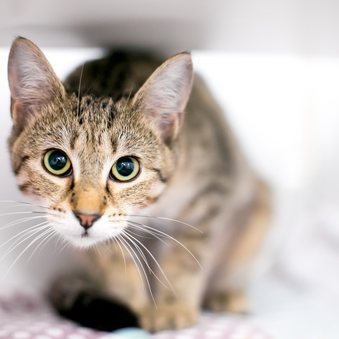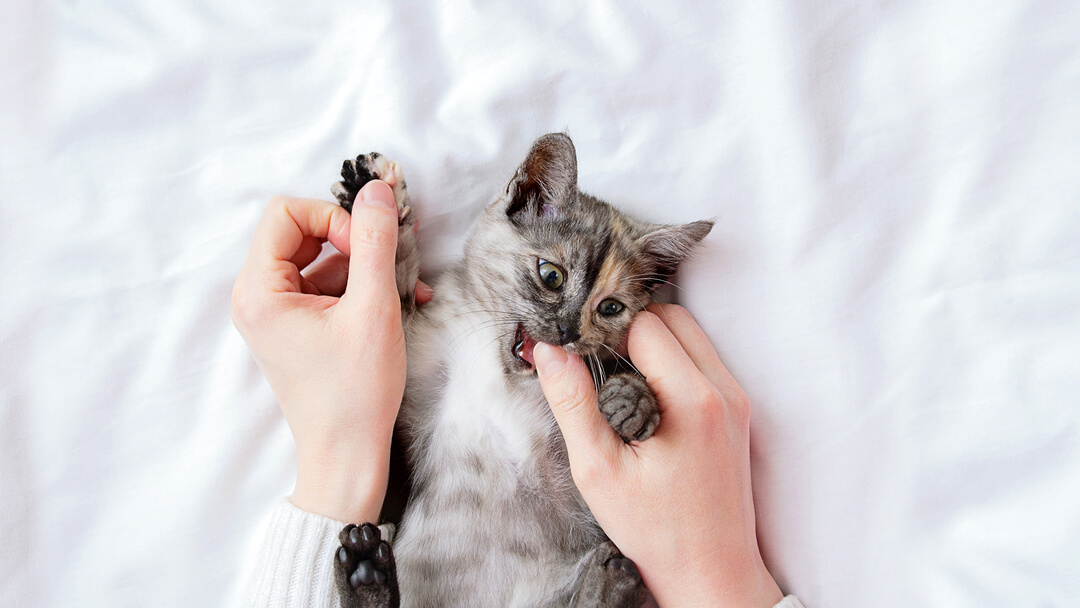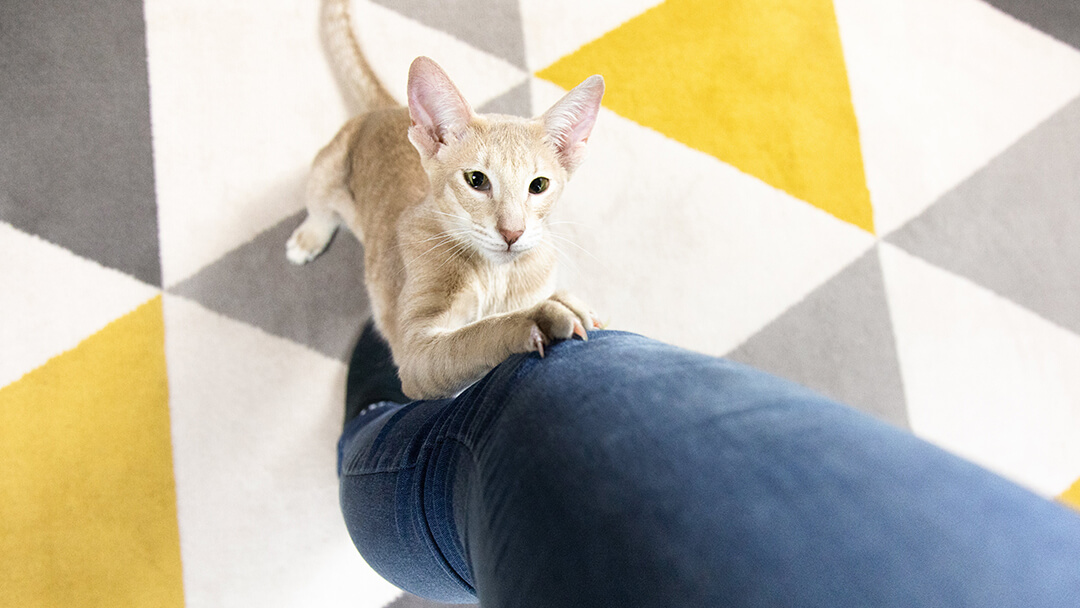
It can be extremely distressing to see your cat get into a fight, whether that is with their playmates at home or with other cats outside of the house.
But there are ways to stop cats fighting, both in the short term and in the long term. In this article, we’ll explore why cats fight, how to stop cats from fighting and what long-term solutions you can look towards if it keeps happening.
Why do cats fight?
Territory: Cats are territorial animals and they will often fight to defend what they believe is their territory. This is most common with cat fights that happen outside the house, where your cat believes another cat has encroached on their land. Alternately, a feral cat could believe your cat should not be here. But such fighting is also common among cats who live together. Cats mark their territories with scent, and your house is no exception. If you have more than one cat living at home, they will often fight about this issue.
Aggression: Some cats can be aggressive by nature. Male cats are especially aggressive and these cats keep fighting. Sometimes, they also dominate female cats. Your cat may need to act out their aggression by picking fights with their brothers and sisters or by causing a fight with a strange cat.
Rough play: Sometimes cats can be playing and it can get rough. Cats are rough when they play – this may look like aggression and fighting, but it is not. Still, such play could escalate into a fight or cause harm to both or one of the cats. In such cases, it is best to separate your cats if you can do so safely.
Cats are not pack animals, and they don’t generally enjoy living in groups, small or large. There are ways to make space sharing less stressful including: providing separate feeding areas for each cat, providing numerous water stations, and creating lots of quiet, private hiding areas for ‘me time’. Using cat-appeasing pheromone products (either sprays to use on furniture around the home or plug into diffusers) can help to reduce feeling s of stress and therefore reduce aggressive behaviour. These techniques will help with the introduction of a new cat or to reduce any signs of aggression in household that already has multiple cats.
What do you do if your cats are fighting?
Watching your cats fighting can be heart-breaking; here are two animals that you adore and they are hurting each other! While your first instinct might be to jump in and separate them, do be careful. Cats can be aggressive they are worked up like this, and you may get a lot of scratches for your efforts. We suggest trying to gently separate them, as long as you are sure you are not in harm’s way.
Distract them: Cats can get very engrossed with fighting, but you can try and distract them. Find something you know the love, like a toy, and make a noise with it. This might get their attention and stop the fight.
The most important thing to remember when stepping in to halt the fighting is: don’t get hurt and don’t make you cat(s) more stressed/scared with the techniques used. So don’t be aggressive towards your cat, and don’t use heavy-handed techniques.
What do you do if another cat is fighting yours?
Sometimes, when your cat is wandering outside, they could be attacked by another cat. These attacks can be systematic: owners have stories of a single cat that keeps fighting their cat every time they go outside. This is especially worrying if your cat is mild-mannered and gentle, and is unlikely to fight back. The injuries from these fights can require several trips to the vet and can be worrying.
The best solution for how to stop cats from fighting in this situation is to keep your cat indoors. Letting them out after dark can be especially dangerous.
If you cannot keep your cat indoors, you can try and find out if the other cat belongs to someone and if that cat can be controlled. Alternately, when you hear your cat is in distress, go outside to help. Most strange cats will run at the sight of a human, so you may not have to do much to stop the fight except turn up.
Long-term solutions
If your cat keeps fighting, whether with other cats in your house or with strange cats from the neighbourhood, you may need a more permanent solution. A cat that always gets into fights may be suffering from excess aggression or they may simply have poor socialisation skills. Here are some leads on how to help your cat for the long term.
Vets: Cats often fight because they have excess aggression. This aggression can be a symptom of an illness that you are not aware of. Take them to the vet and get them checked out. Your vet will be able to advise you on how to proceed.
Animal behaviourists: If your cat is not ill but still has a large amount of unresolved aggression, you can take them to an animal behaviourist. These cat specialists are good at resolving issues for cats who keep fighting, and they can train your cat to manage their aggression better.
Socialisation: One of the main reasons that cats fight is poor socialisation. These cats simply do not know how to share or get along with other cats. You may need to re-socialise these cats so that they know how to act around others. You can take them to cat training school to try and improve their behaviour. Alternately, there are books and YouTube tutorials on how to help your cat get along better with other cats.
Watching your cats fight can be distressing, but it can be solved. Simply follow the guidelines in this article to try and separate your cats when the fight occurs. Moreover, try one of the long-term leads above if it seems like they may need a more permanent solution. Remember, these fights can be solved and do not have to be an enduring problem.













